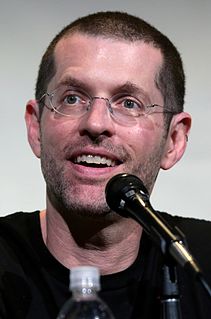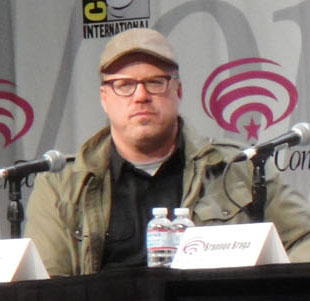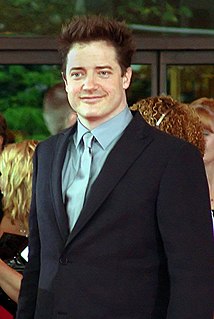A Quote by D. B. Weiss
One of the trickiest things about 'Game of Thrones' is just seeding those first couple of episodes with that basic information that people need to know, both about the world and the ground rules of the world, and the relationships between the characters, as far as who means what to whom and why.
Related Quotes
I understand why people are discouraged about Iraq. I can understand that. We live in a, you know, world in which people hope things happen quickly. And this is a situation where things don't happen quickly because there's, you know, a very tough group of people using tactics - mainly the killing of innocent people - to achieve their objective, and they're skillful about how they do this. And they also know the impact of what it means on the consciousness of those of us who live in the free world. They know that.
Because if you remember - and people forget this - the first two years of Game of Thrones everybody was going, "I don't know what's going on, but I really like it." And you really didn't know what to make of a lot of people, and now it's changed and people aren't really talking about that. Now it's like you're watching West Wing or Friends, you know the characters and you're like, "What in the world is going to happen?"
I don't like realism. We already know the real facts about li[fe], most of the basic facts. I'm not interested in repeating what we already know. We know about sex, about violence, about murder, about war. All these things, by the time we're 18, we're up to here. From there on we need interpreters. We need poets. We need philosophers. We need theologians, who take the same basic facts and work with them and help us make do with those facts. Facts alone are not enough. It's interpretation.
[What I want to communicate] doesn't have a language with which I can communicate it. The things that I want to communicate are simply self-evident, emotional things. And the gifts of those things are that they bring both intellectual and emotional gifts - understanding. But I don't really have a major message that I want to bring to the world through my music. The music can tell people everything they need to know about being human beings. It's not my information, it's not mine. I didn't make it. I just discovered it.
I spent most of my teen years trying to figure out the rules of life, theories for why things happened, why people behaved as they did, and mostly I came to the conclusion that either there were no rules, or the rules sucked. Reading science fiction wasn't about imagining myself into some more exciting life filled with adventure, it was about finding a world where things worked the way I wanted them to.
When I find too many puzzles about the way explanations are given about why there is inequality - why people who work the hardest in the world end up being the poorest - I can't just sit back and not try to understand why the gaps between people are increasing, or why there are so many homeless and hungry people in the world.
The thing about 'Game of Thrones' is it doesn't pin too much of a focus on magic. It kind of paints it in the same way that mystical things are portrayed in our world, because you don't walk about Westeros and see wizards with staffs or magical wands. All the characters don't really believe in it. It's this mysterious hidden vein to Westeros.
Early on, I settled on the first-person strategy as a way to deal with exposition and world-description issues. As long as the book is, it could have been far longer had I gone with an omniscient third-person narrator, or multiple point-of-view characters, since either of those would have enabled me to impart much more detailed information about the history and geography of the world.
I just rely on the text to speak for itself and then speak it as I believe it to interpret it, and then just know that the rules of the world that we're creating allow for things to come to life, and then just trust in the process of making a film. Hopefully we'll make a sequel, because if we do, we had such a great time as an ensemble, I think the best thing to do would be to just take the whole cast back. This is Iain's idea and I agree with it. Just reincarnate all the characters and put them back into the world. There's no rules. Why couldn't we do that?
You couple that with how I looked when I was younger, and growing up... The voice is not quite breaking. It's awful. No, I don't enjoy that at all. But that's one of the things people love and find so endearing about the Harry Potter series, and why they've lasted so long. Because people have grown up with us, and they care about the characters. They're not just some characters in the film, they're people you can relate to, and you care about, and you grew up with, and when they die in this film, people feel it!
I think that I would really like at first for the art to speak for itself. I don't see the need for a lot of personal information about my past or who I am. I would rather the personal side of it just be in the concepts and the genuine feelings that I filter through my work. I know that it's inevitable that people can find whatever they want about me. Once I've had a chance to create a language and a world with my art, then I'm more comfortable sharing that information.
I think we're always trying to avoid tropes. And I think that "Game of Thrones" has almost made killing people a cliche. For us, it wasn't about that. For six episodes, it's hard to invest in people, and I think when you kill a main character on television it really needs to mean something. So we certainly had talked about that, and I think we managed to juggle the ball to make a gripping, interesting and compelling finale. We feel that we didn't have to go there at this point because we had such few episodes.
So far rich people have been very quiet about the possibility of getting taxes raised on them, but that doesn't mean they won't get mad about it, it just means they don't know about it. Because it takes a while for bad news to reach a rich person. First their accountant has to tell the butler, who has to tell the servant, who wouldn't dare interrupt their game of croquet.



































